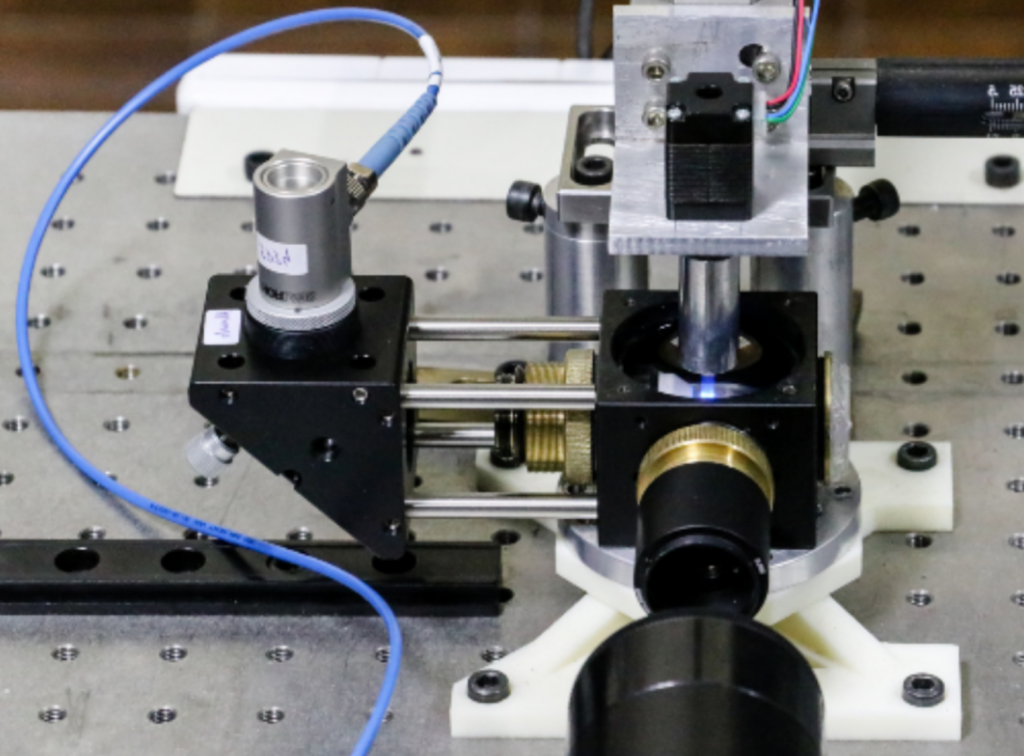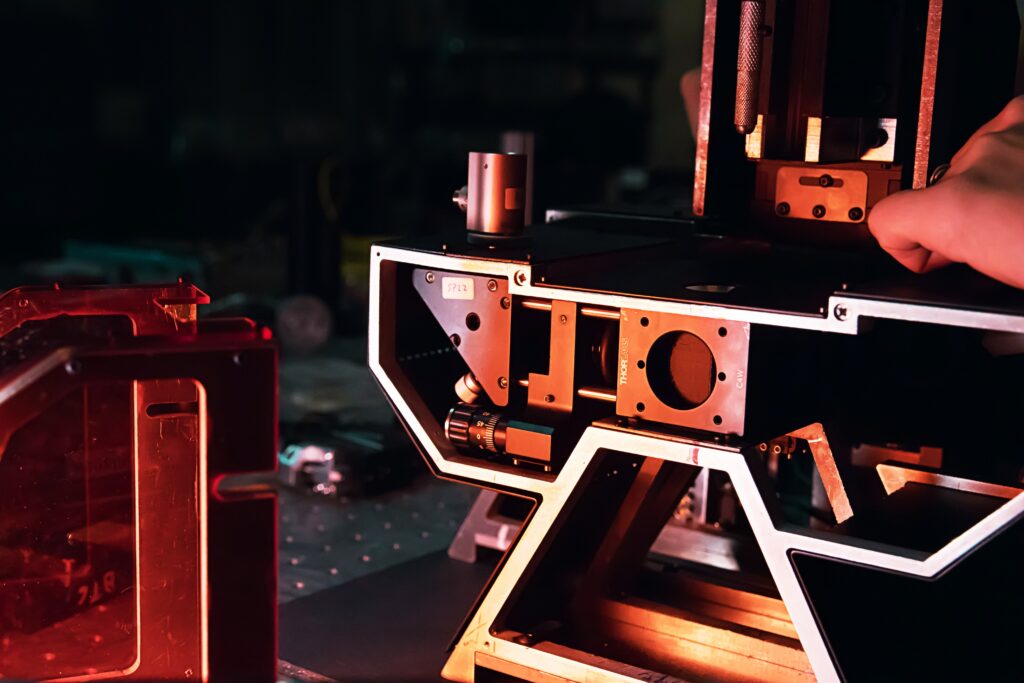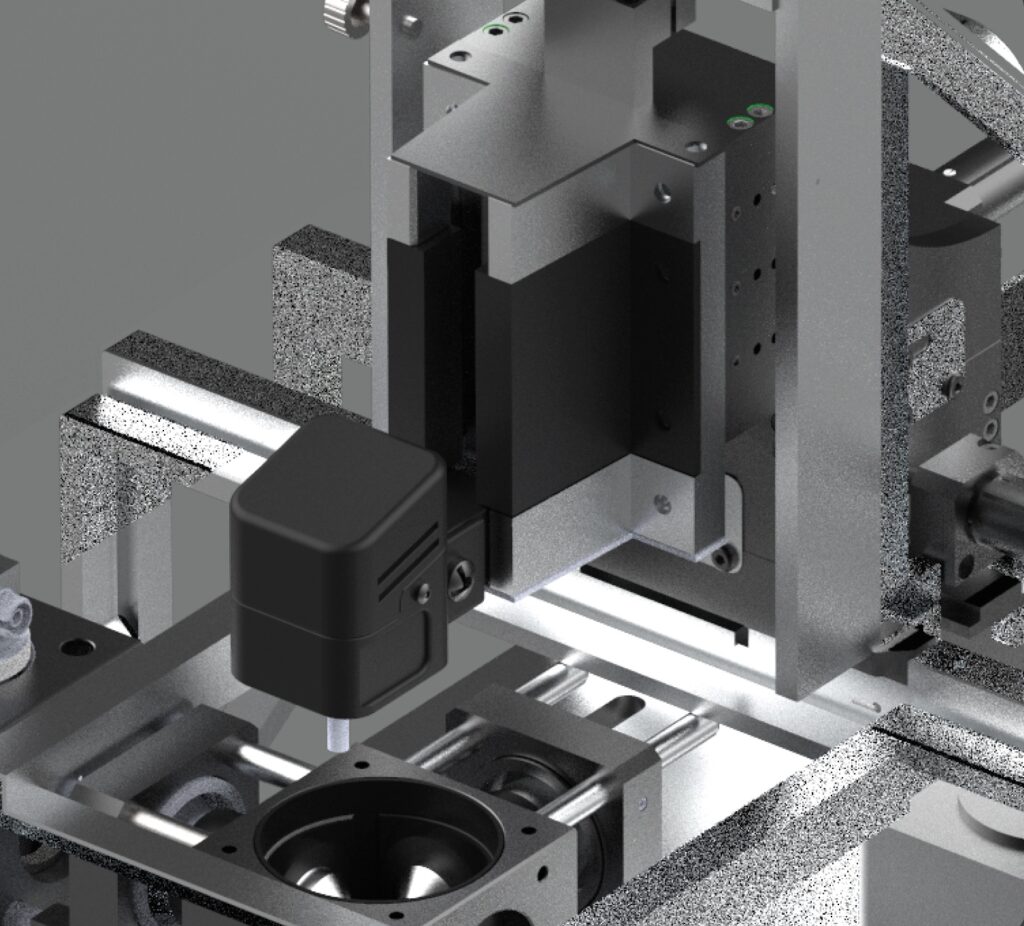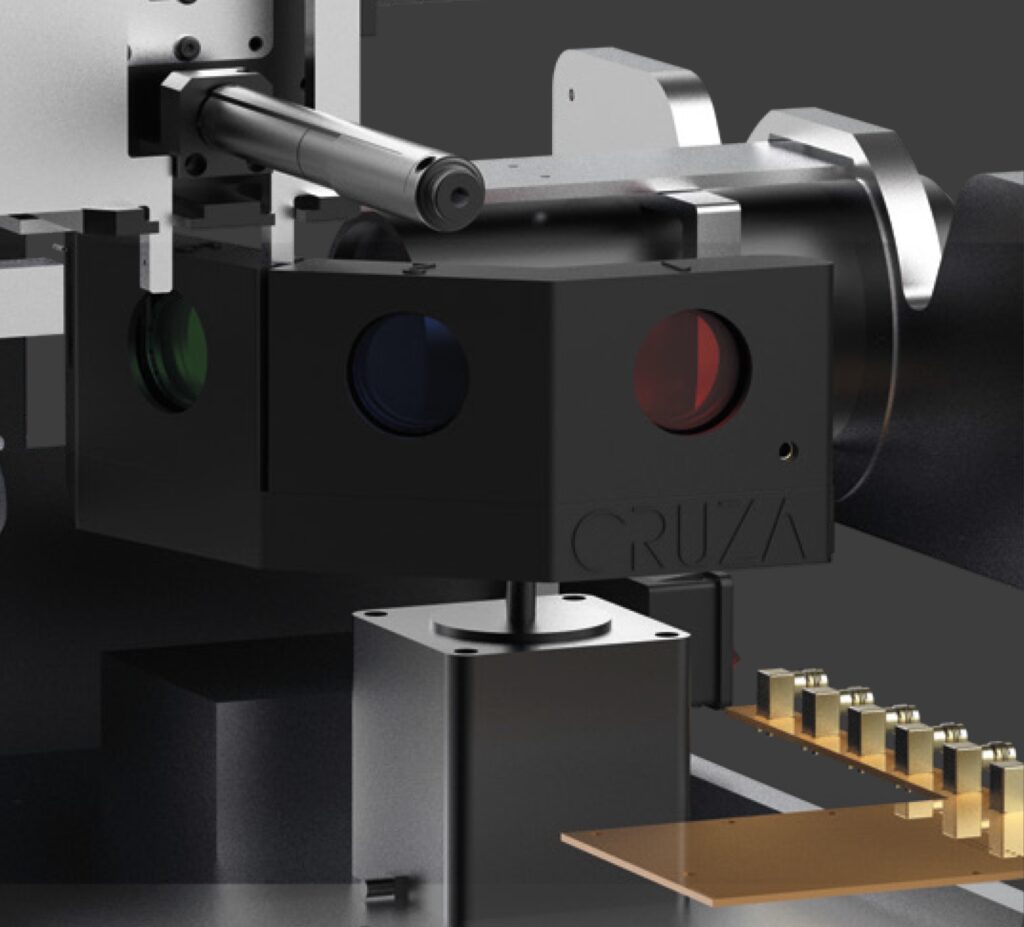Our History
- Home
- Our History
From the lab to the lab
Cruza was born in Buenos Aires, Argentina. It started as a wild dream: what would happen if the design faculty and the physics department would join forces for a graduation project?
Cruza is the intersection of skills, interests, and world views. At its technical core, it’s a light-sheet microscope, at its center it’s a project that aims at bringing together people from different backgrounds.

The Optical Design
The compactLSFM
The group of Hernán Grecco, together with Burno Moretti, Nicolás Müller, and Marcos Wappner, developed a compact light-sheet fluorescence microscope (Applied Optics) nicknamed compactLSFM.
It builds on other projects such as the OpenSpim, but it replaces the refractive optics by reflective optics, allowing not only to achieve a much smaller footprint, but also better performance when using different wavelengths through the same excitation path.

Improving the design
Creation of Cruza
Do-it-yourself (DIY) microscopes can be great tools for research, but in many cases they are hard to operate for most users. Improving the design of the instrument can deliver a big impact in usability.
Cruza is the product of the graduation project of a group of design students (press article, in Spanish) that jumped in to improve the overall performance of the system.

The results
Filter exchanges and sample mount
Thanks to the relentless work of both teams (physicists and designers) for a year, some results are immediately visible.
The filter exchanger is a radical new approach compared to traditional filter wheels. By moving the filter horizontally, the assembly is very compact and is much gentler in tolerancing requirements.
Mounting samples in light-sheet microscopes can be tedious and error prone. Cruza developed a rotating mount that allows to insert tubes or needles comfortably, and secures them in place with an adjustment head. Just sliding it brings them into the index-matching bath, ready to start the measurement.

Technology Transfer
Commercializing a research project
Cruza is more than just a device, it is a long-term project that aims at showing a different path forward for instrument design and commercialization. Through a partnership between the University of Buenos Aires and Solbion, a high-tech company in The Netherlands, Cruza became a device available to everyone, regardless of their skills on the optical table.
Cruza Instruments is not only a vehicle to commercialize the Neo1, it is also an experiment to show that it is possible to build a sustainable business case around open-hardware scientific instruments. We are building a platform for the easy exchange of best practices around scientific instruments, taking into account not only the perspective of other developers, but of the intended users.
We are open to discussing about projects that may become part of our portfolio, best practices, and open-hardware in general. We receive messages through the form below.
